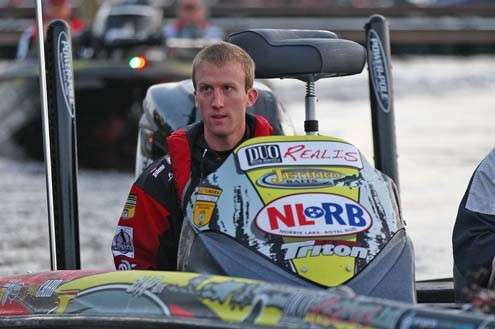
DANDRIDGE, Tenn. — The Bassmasters Elite Series anglers competing at the Douglas Lake Challenge are not shying away from catching everything that bites. Fish management is typically a concern in tournaments, but with small feeding windows, maximizing the bites is crucial.
Feeding periods are random and unexpected; it’s all about the timing, forcing anglers to capitalize on active water and covering a lot of ground.
“I’ll leave a spot once they stop feeding, even if I can still see them on the graph,” said Brandon Card, currently in eighth place with a two-day total of 33 pounds, 1 ounce. “It’s a pretty quick feeding window, maybe 30 minutes. So I’m trying to run a lot of water and fish more areas.”
With big schools of fish, generally speaking, if you get that first fish to bite you can ignite the entire school. That’s not necessarily the case on Douglas Lake for all the competitors. It tends to be different than any other deep water lake in the country.
“It’s not like a Kentucky Lake deal where you can get them fired up and catch one every cast,” Card said. “They’re not grouped up enough to where you can do that. You get a bite every five, 10 minutes when they do turn on.”
Jeff Kriet sits in sixth place with 33-15 and is one of the few anglers to use some fish management strategies throughout the event.
“When you pull up, you’re going to catch the biggest ones within the first six, eight fish, but if you keep catching fish, you’re going to burn up your water and spread the school out,” he said. “I’m not going to do that just to cull up ounces.”
Aaron Martens also has realized that the schools of fish are beginning to break into smaller groups and spread out.
“Instead of there being 30-40 arches in one spot, they’re broken up across an area about the size of a football field now,” Martens said.
On a highly pressured lake such as Douglas, fish are well-educated and they realize pressure when it shows up. This causes those schools to separate and spread out, making them extremely difficult to pinpoint.
“These fish are smart and they’re educated, they’ve been in a lot of livewells,” Martens said.
